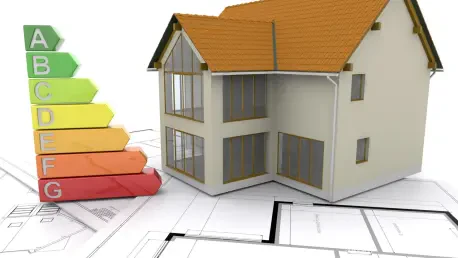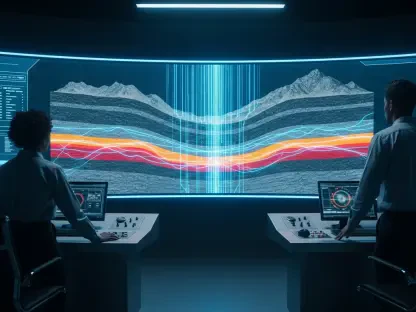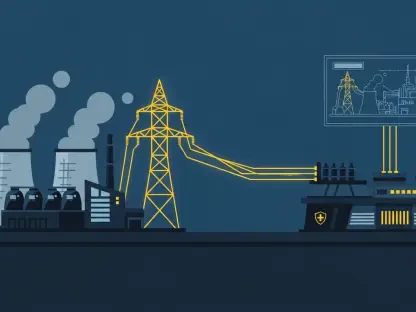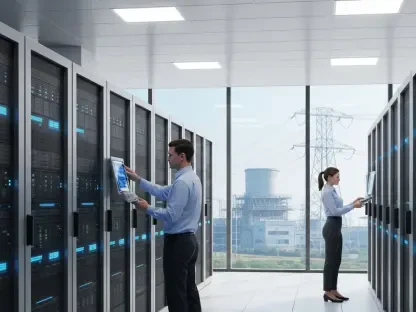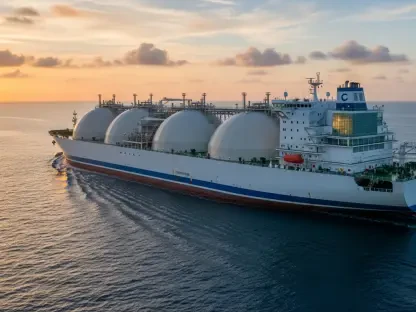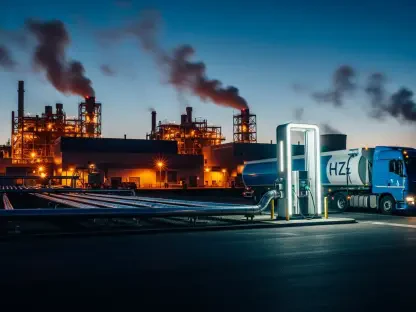Setting the Stage: A Booming Sector at a Crossroads
India’s industrial construction sector stands as a colossus in the nation’s economic framework, poised to contribute a staggering $1 trillion to the economy by 2030. This immense potential comes at a time when infrastructure demands are surging, driven by rapid urbanization, manufacturing growth, and government initiatives like “Make in India.” Yet, the industry grapples with persistent challenges—fragmented operations, cost overruns, and environmental concerns. Amid this dynamic landscape, REnergy Dynamics Infraworks Pvt. Ltd. (REDi), a new vertical of REnergy Dynamics (RED), emerges with a promise to redefine the market through specialized Engineering, Procurement, and Construction (EPC) solutions. This analysis explores REDi’s strategic positioning, the broader market trends shaping industrial construction, and whether this newcomer can catalyze a transformative shift in a sector critical to India’s growth trajectory.
Decoding Market Dynamics: Trends and Challenges in Industrial Construction
Historical Context and Current Realities
The industrial construction market in India has long been characterized by inefficiencies, with traditional practices leading to delayed timelines and inconsistent quality across projects. Over the past few decades, the sector has seen exponential demand in areas like logistics, warehousing, and heavy industry, fueled by economic liberalization and urban expansion. However, these growth drivers have often been offset by systemic issues such as inadequate adoption of technology and limited focus on sustainable practices. Today, as the market navigates a projected growth path toward a $1 trillion valuation by 2030, the need for integrated, efficient solutions has never been more apparent. This backdrop sets a challenging yet opportunity-rich stage for innovative entrants aiming to address these gaps.
Emerging Trends Shaping the Landscape
A wave of transformation is sweeping through the sector, with digital tools and sustainability becoming central to future growth. Technologies like Artificial Intelligence for project monitoring and Pre-Engineered Building (PEB) systems are gaining traction, promising to streamline operations and reduce capital expenditure. Additionally, the push for green building certifications aligns with stricter environmental regulations, creating a niche for companies that prioritize eco-friendly designs. Market data suggests that firms adopting these trends could capture significant shares in high-growth segments like urban utilities and water supply infrastructure. The convergence of technology and regulatory shifts indicates a market ripe for disruption, provided players can balance innovation with cost-effectiveness.
Persistent Barriers to Overcome
Despite the optimism, substantial hurdles remain that could impede progress for even the most ambitious firms. High initial costs of adopting advanced technologies pose a barrier, particularly for smaller contractors who dominate much of the regional landscape. Furthermore, the shortage of skilled labor capable of implementing modern construction techniques exacerbates project delays. Environmental concerns also loom large, as the sector faces scrutiny for its carbon footprint and resource consumption. These challenges underscore the complexity of scaling operations in a diverse market like India, where economic disparities and regulatory inconsistencies add layers of difficulty for industry players.
REDi’s Market Entry: A Strategic Analysis
Innovative Solutions as a Competitive Edge
REDi enters the fray with a clear focus on leveraging cutting-edge tools to differentiate itself in a crowded field. By integrating digital project management systems and modular construction techniques, the company aims to tackle inefficiencies head-on, optimizing timelines and enhancing project delivery. Early indicators of market confidence are evident, with REDi securing a notable mandate from a leading industrial conglomerate shortly after its launch. However, the scalability of these technologies across varied project sizes and geographies remains a question mark. Success will hinge on the ability to make innovation accessible without inflating costs for clients in cost-sensitive markets.
Leadership as a Market Differentiator
The strength of REDi’s leadership team provides a robust foundation for navigating market complexities. With a blend of military precision and deep industry experience, the management brings strategic oversight to large-scale project execution. This dual expertise in infrastructure and logistics positions REDi to address sector-specific demands, particularly in high-growth areas like warehousing and public works. Compared to traditional firms often constrained by singular skill sets, this diverse perspective offers a unique advantage. Nevertheless, rapid expansion in a fragmented market could strain operational consistency, testing the leadership’s ability to maintain quality across diverse engagements.
Sustainability as a Growth Driver
Positioning sustainability at the core of its operations, REDi taps into a growing demand for environmentally conscious infrastructure. The emphasis on just-in-time supply chains and energy-efficient designs aligns with national priorities for greener development, potentially carving out a niche in sectors like water management and urban utilities. Industry sentiment suggests that specialized EPC providers focusing on sustainability could lead the next wave of market growth. Yet, the perception that sustainable practices are cost-prohibitive persists among many stakeholders. REDi’s challenge lies in proving that eco-friendly solutions can deliver profitability alongside environmental benefits, especially in price-driven regional markets.
Future Projections: Where Is the Market Headed?
Growth Forecasts and Economic Impact
Looking ahead, the industrial construction sector in India is on track for unprecedented expansion, with economic contributions expected to reach $1 trillion by 2030. This forecast reflects robust demand across manufacturing, logistics, and smart city initiatives, creating a fertile ground for specialized players. Projections indicate that firms embracing digital transformation and sustainable practices will likely dominate market share, particularly as government policies incentivize green infrastructure. REDi’s focus on precision-driven execution and scalable solutions positions it well to capitalize on these opportunities, provided it can adapt to evolving client expectations and economic conditions over the next few years.
Regulatory and Technological Shifts
Anticipated regulatory changes, including stricter environmental norms, are set to reshape the competitive landscape. These shifts could accelerate the adoption of sustainable construction practices, benefiting companies already aligned with such priorities. Simultaneously, technological advancements like AI-driven analytics and modular building systems are expected to become standard, reducing project timelines by significant margins. Market analysis suggests that firms failing to integrate these innovations risk losing relevance. For REDi, staying ahead of these trends will be critical to maintaining a competitive edge in a sector increasingly defined by adaptability and foresight.
Potential Risks and Uncertainties
While the outlook appears promising, several risks could derail growth trajectories for emerging players. Economic fluctuations and policy inconsistencies across states may impact project funding and timelines, creating uncertainty for long-term planning. Additionally, technological disruptions, while beneficial, carry the risk of obsolescence if investments are not strategically timed. For a new entrant like REDi, navigating these uncertainties will require a keen focus on market intelligence and flexible operational models. The ability to pivot in response to unforeseen challenges will ultimately determine its staying power in a volatile industry.
Reflecting on the Path Forward: Strategic Insights
Looking back, this analysis highlighted the immense potential of India’s industrial construction market, underscored by a projected $1 trillion contribution to the economy by 2030, and the pivotal role innovative players like REDi play in shaping its direction. The examination of market trends revealed a sector at a turning point, with technology and sustainability emerging as key differentiators amid persistent challenges like cost barriers and skill shortages. REDi’s strategic entry, backed by cutting-edge solutions and seasoned leadership, positions it as a contender to redefine industry standards.
For stakeholders, the insights from this analysis point toward actionable steps to harness the market’s growth. Construction firms are encouraged to invest in digital tools and explore partnerships with innovators to enhance efficiency. Policymakers stand to benefit from crafting frameworks that support sustainable infrastructure, aligning with national economic goals. Investors, meanwhile, find value in backing entities that prioritize scalability and environmental impact. As the sector continues to evolve, the focus remains on fostering adaptability and collaboration to build a resilient industrial future for India.
